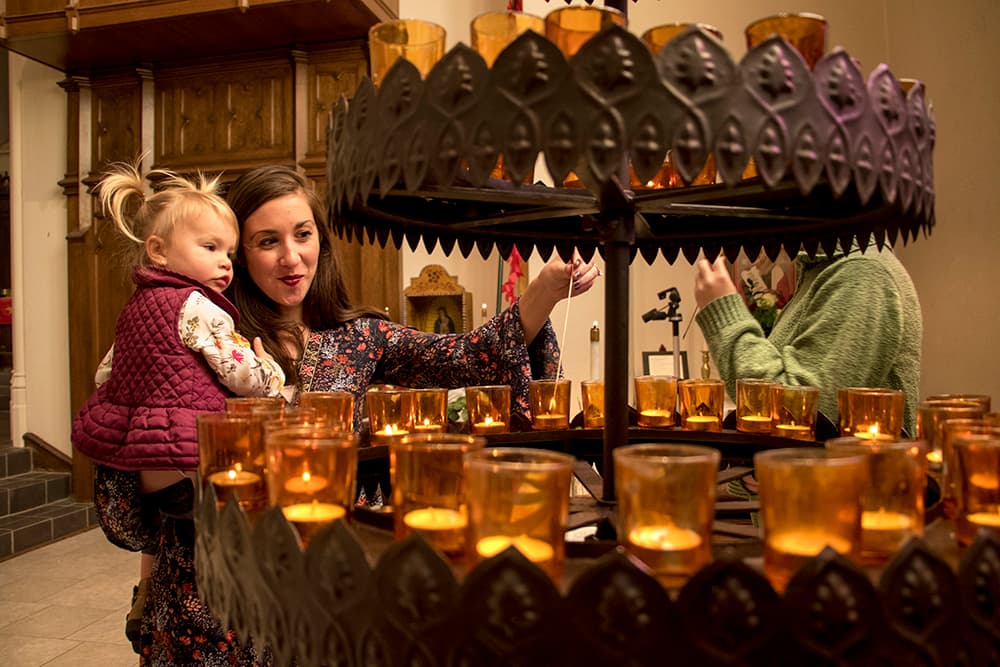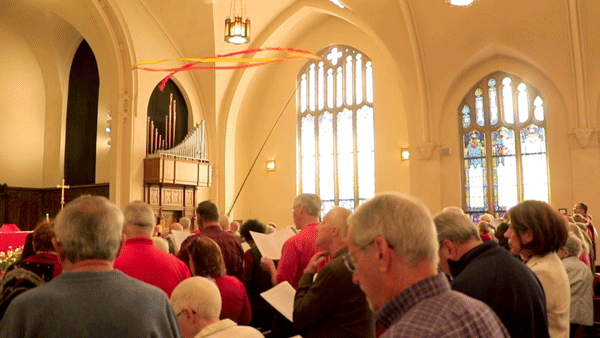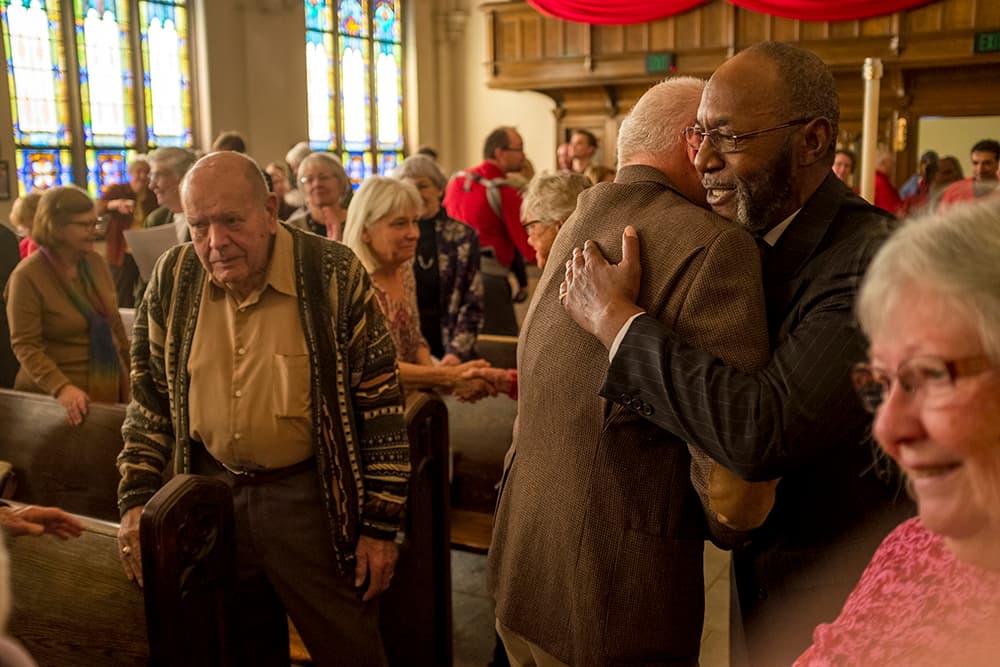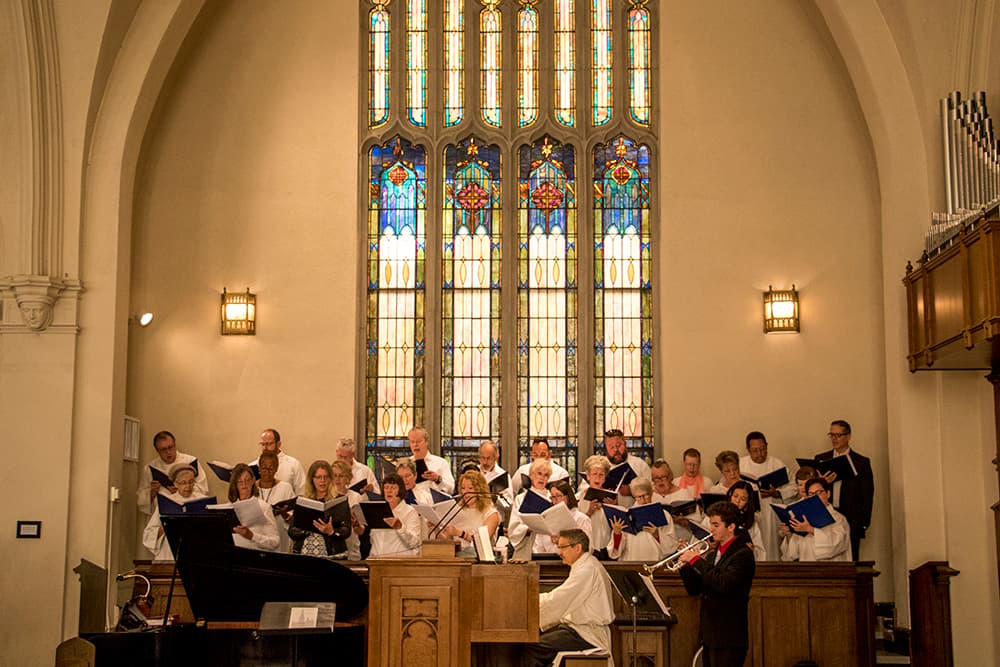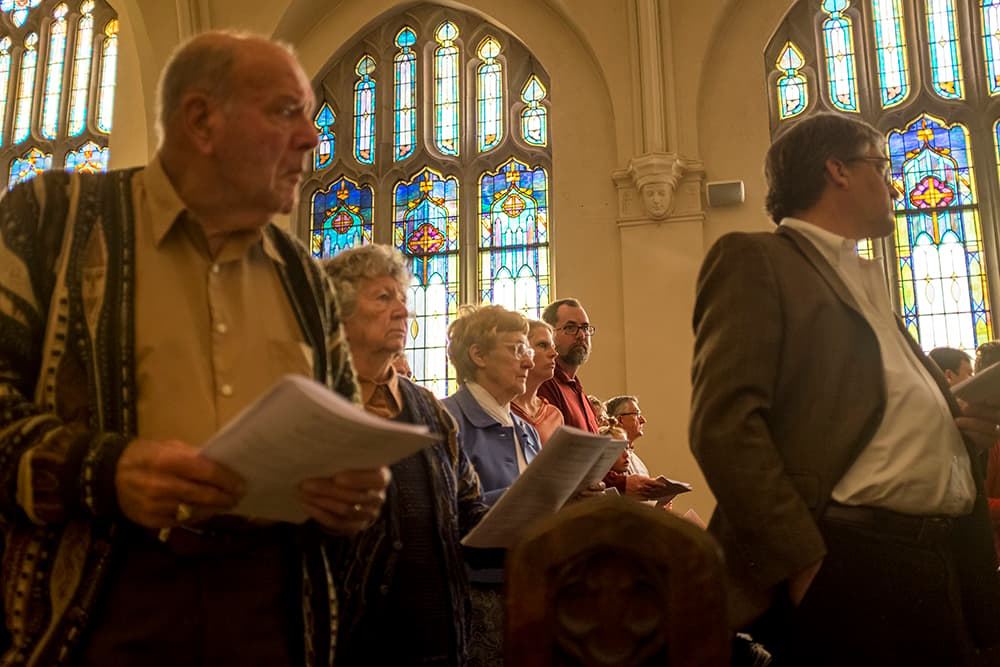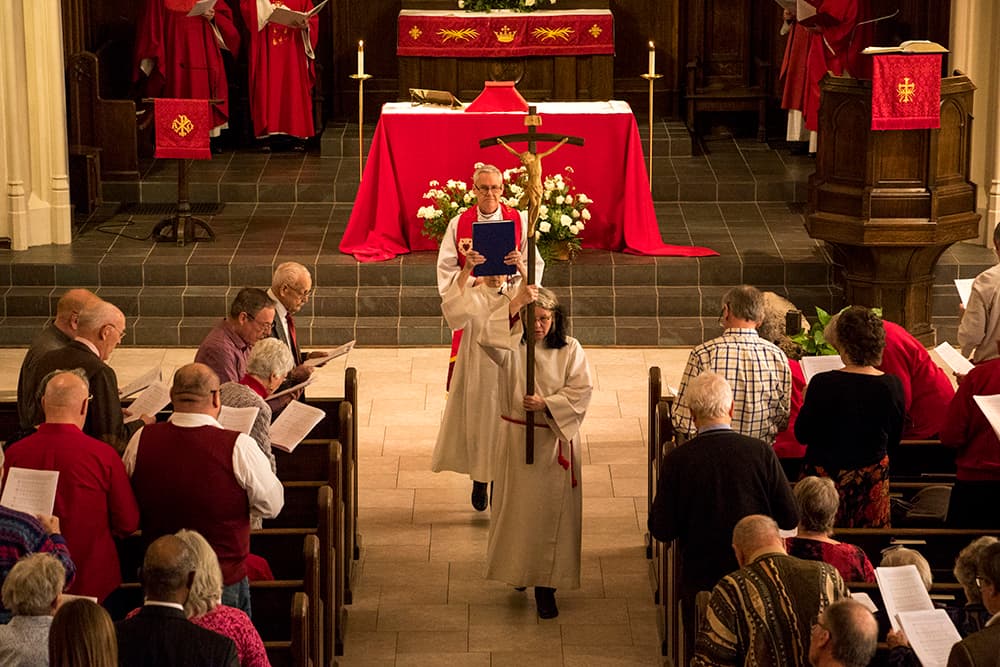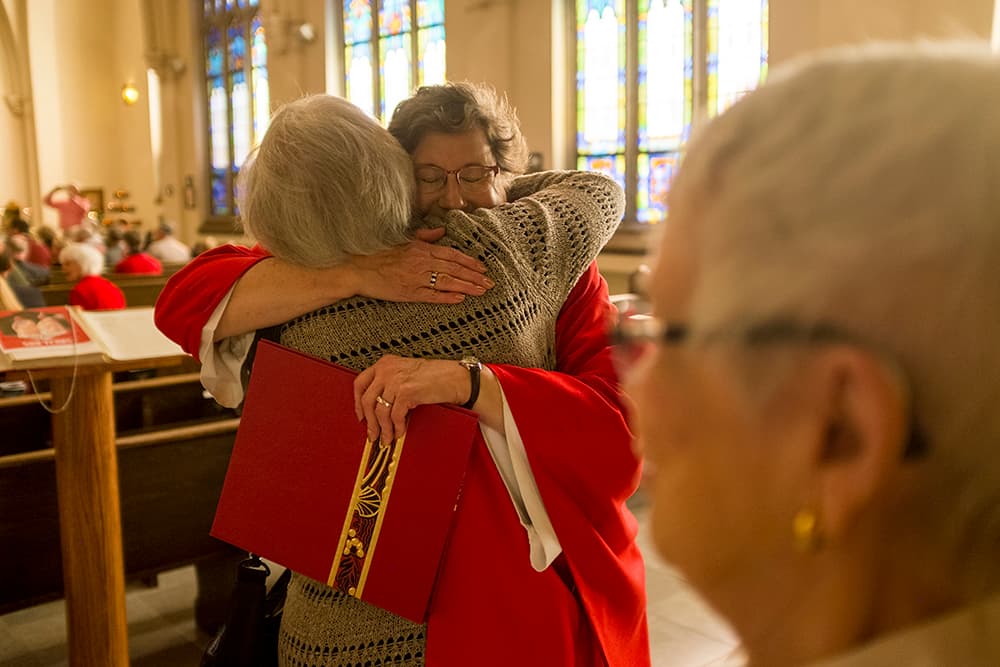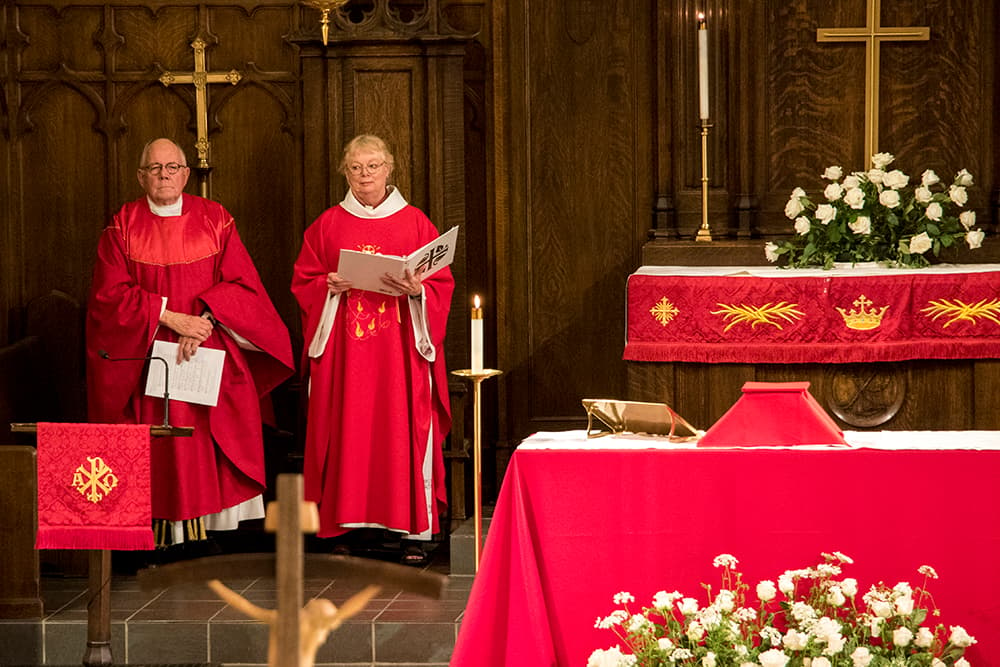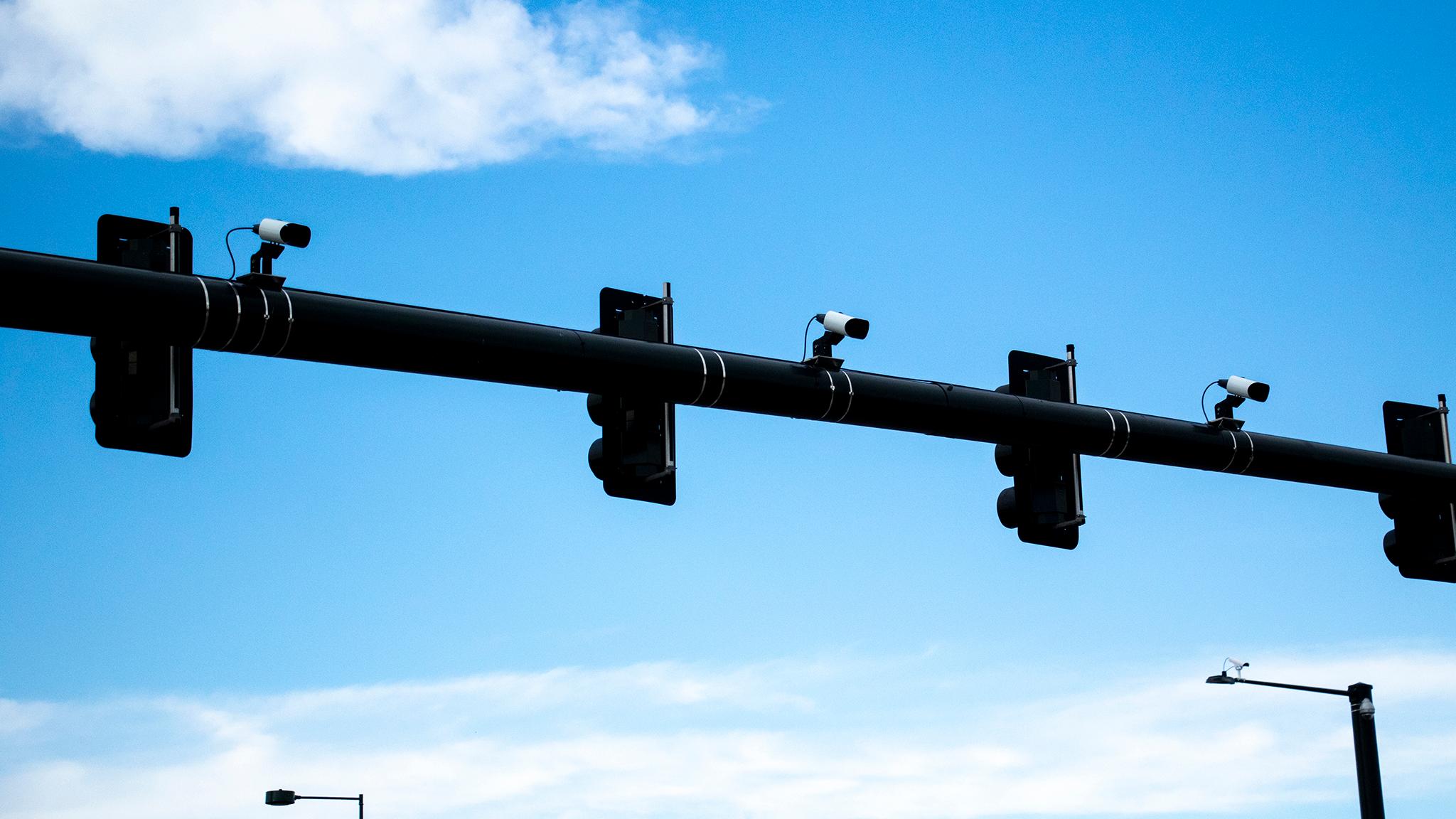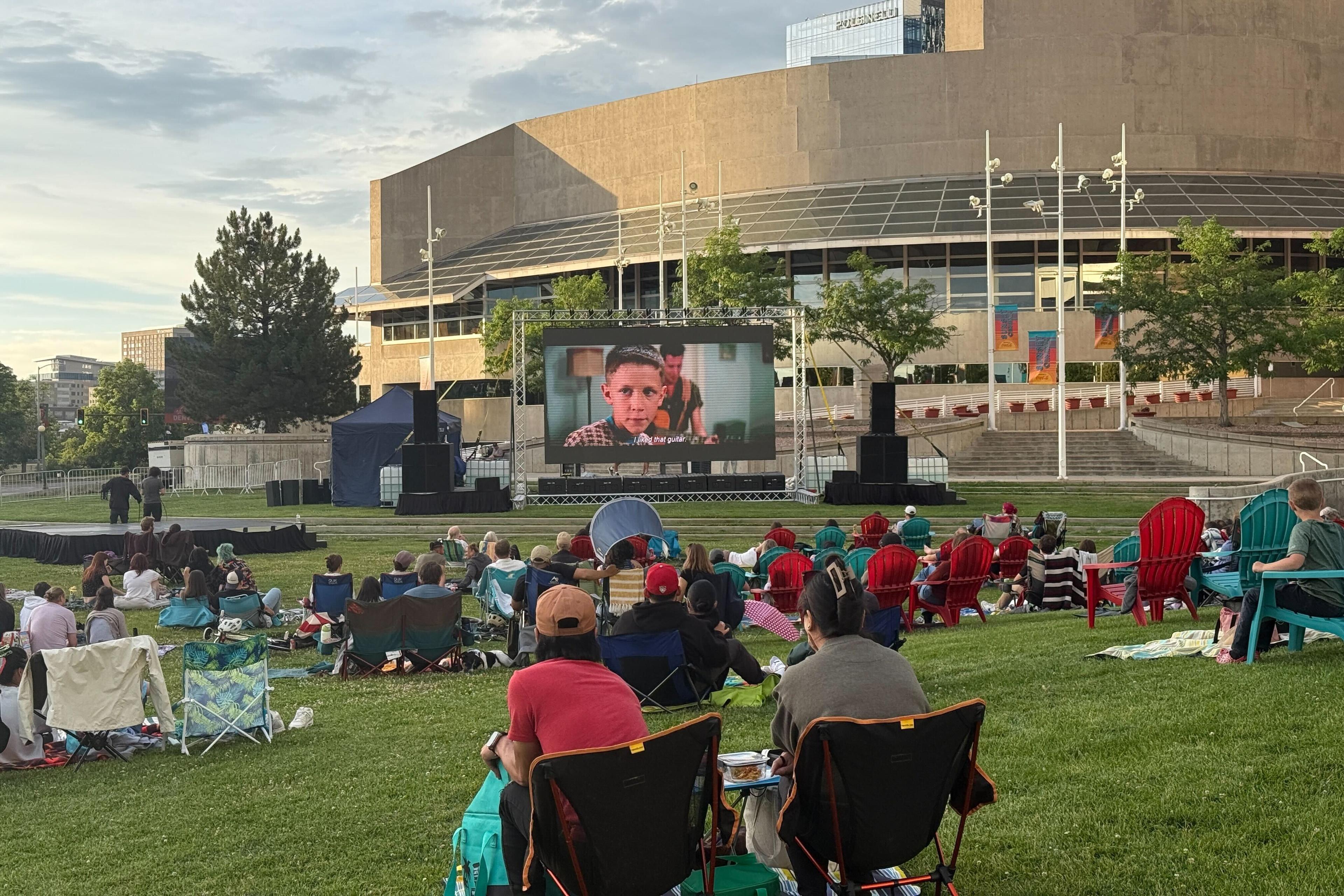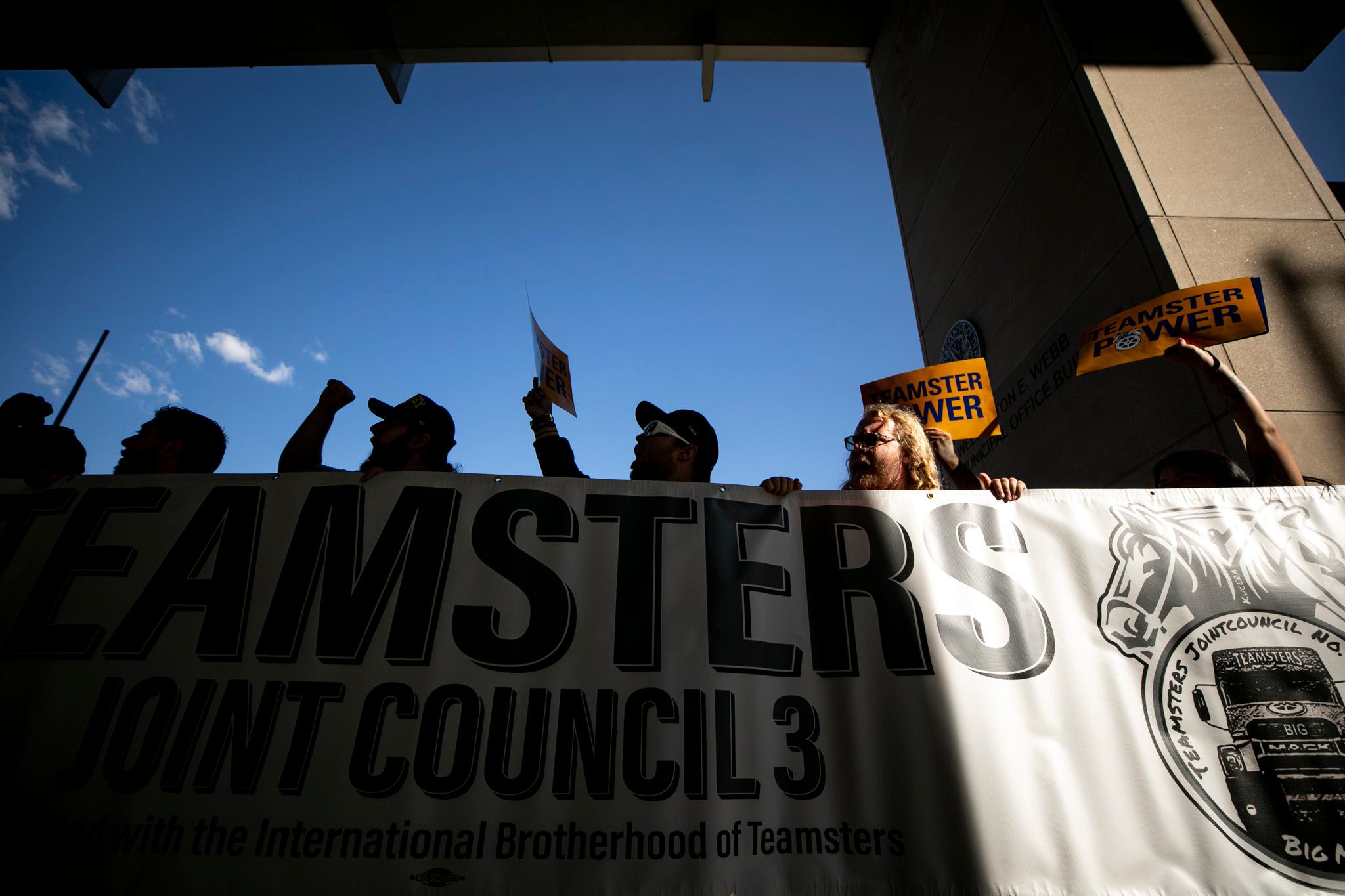In the 1950s — let alone the 1650s — Lutherans and Catholics couldn't imagine sitting together for church services. The Reformation, which began 500 years ago on Tuesday, marked Protestantism’s violent split from Catholicism and created divisions that have persisted nearly as long. One Denver church is working to mend those old wounds.
On Sunday morning, as a service began inside St. Paul Lutheran and Catholic Community of Faith at 16th and Grant, Lutherans and Catholics stood together as a leaders from both denominations entered the sanctuary to begin a joint service. This is kind of a big deal when you think about the centuries of religious war that followed the Reformation.
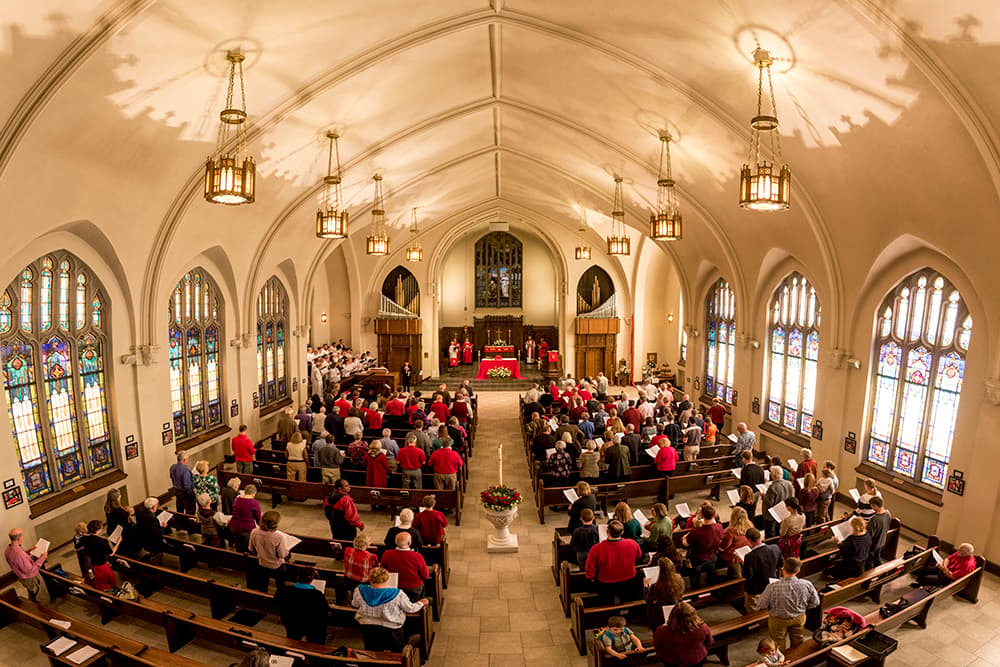
On Oct. 31, 1517, Catholic monk Martin Luther set the Reformation in motion when -- according to legend -- he nailed his 95 theses to the door of the church in Wittenberg. He was objecting to the corruption and materialism of the Church in his day. He wasn't the first to dissent from the Catholic Church, but his actions are seen as creating Protestantism, a movement that set the stage for the Enlightenment, sparked religious wars and shaped the colonization of the Americas.
Lutherans and Catholics, specifically, have been on a path to reconciliation since 1962 when Pope John XXIII called for the Second Vatican Council, an attempt to create dialogue across denominations and promote spiritual renewal within the Church. Still, it's been slow going for many to reconnect. Groups like St. Paul's Lutheran and Roman Catholic Community of Faith have been acting to see faster change.
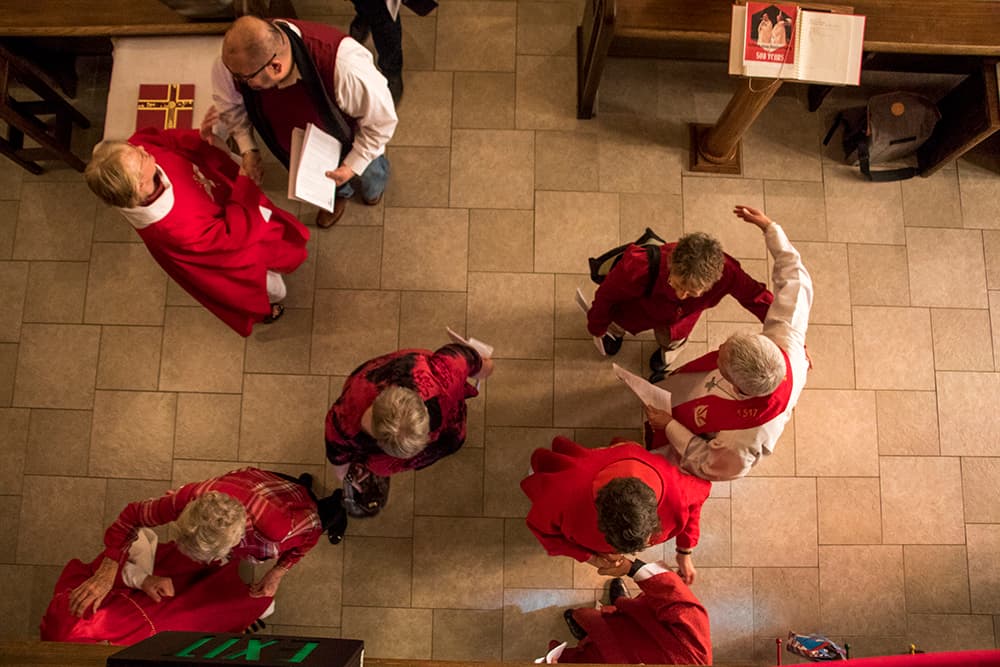
"There are always people who try and push the envelope," Father Don Sutton said. "I’m one of them."
Father Don Sutton, a Catholic, and the Rev. Penni Walsh, a Lutheran, see themselves as religious rabble-rousers. The leaders of St. Paul's meshed congregation say they've stepped beyond the playbooks of both of their traditions. Some will say they're too Catholic, others that they're too Protestant.
For Sutton and Walsh, getting flak from both sides is a good sign. They see the long-held divisions between their traditions as a clue that something needs to be taken in a new direction.
Sutton likes to explain it from the perspective of the 800 or so people who are fed by St. Paul's soup kitchen each week: “No one asks if the food is Lutheran or Catholic."
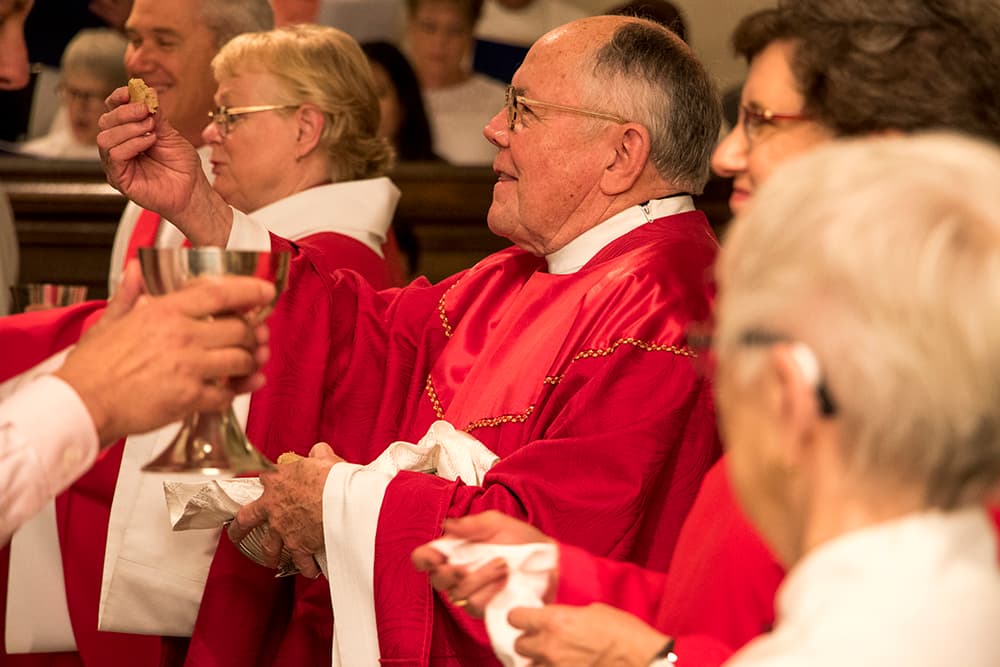
Sutton knows a thing or two about challenging the status quo. The Archdiocese of Denver, which declined to comment for this story, stripped him of his parish and "removed his priestly faculties" 14 years ago. His ministry with St. Paul is not recognized by the official Catholic Church. With a PhD in psychology, Sutton works for the state of Colorado developing materials for people who suffer from depression.
Sutton said he sees religion not as a set of rules but as a pathway to meaning in life.
"Look at the world and the diversity that God created," he said. "There probably is more than one way to find meaning and get to your eternal destiny."
Though he views himself as a "middle-of-the-road old man," that kind of "nontraditional" thought put him at odds with local Catholic officials, and he found himself without a church. With a small congregation in tow, he went looking for a new place to teach the gospel. He found that place at St. Paul with Lutherans who shared his interest in a kind of radical acceptance.
Walsh, an interim pastor who's only been with the church for a short time, said she's found a "kindred soul" in Sutton.
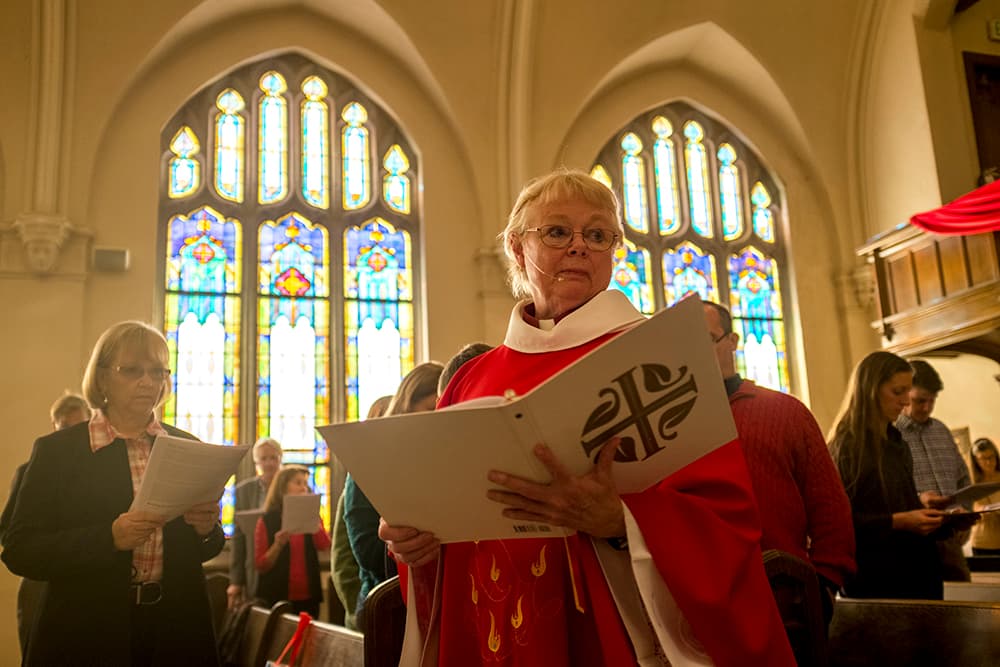
A tradition of resistance continues to define Christians' relationship to a changing world.
Martin Luther didn't seek to start a new church; he just had some complaints about the way things were. Nonetheless, his dissonant ideas struck a chord with his contemporaries, and a revolution was born.
Saint Paul's joint congregation won't upend the social order, but the ways in which they stray from traditional practices can be seen as a recurring theme in a generational struggle to remain relevant.
Kari Kloos, a professor of religion and an administrator at Regis University, told Denverite that every generation in every denomination must reflect on what defines it. Luther made his grievances as political and academic freedom was about to take a leap forward. When European churches resettled in America, they were forced to integrate with the rest of society to make fledgling democracy work. Today, as conversations about identity and belonging take place in secular life, congregations have a lot to consider as they think about how they fit into larger society.
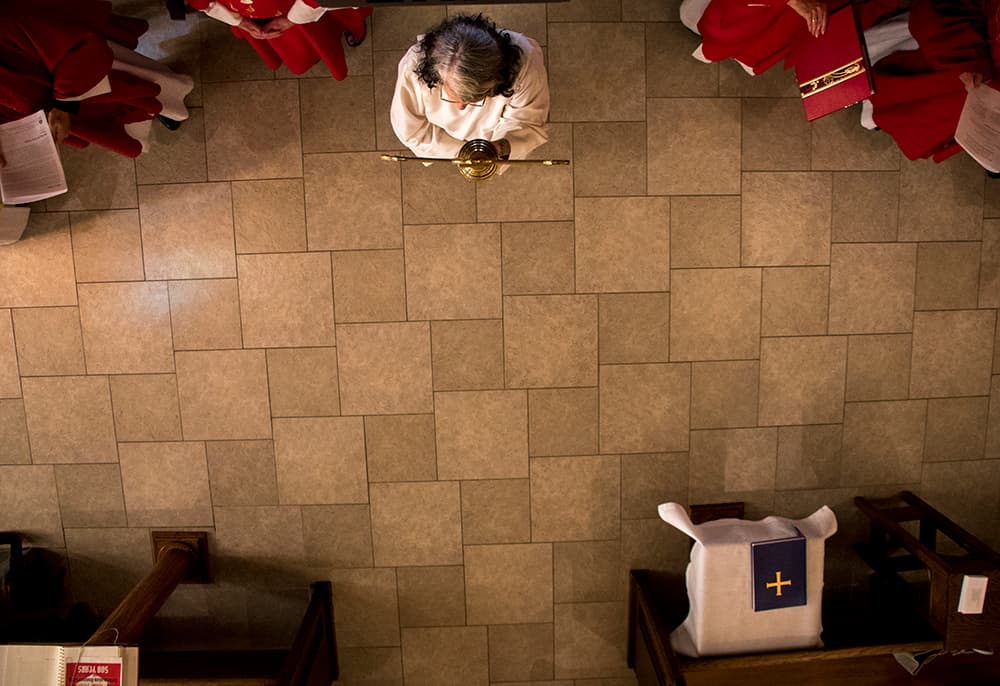
As Christians work to settle differences between themselves, churches like St. Paul hope to lead by example.
While Walsh feels that Christianity still needs to catch up to modern life, both she and Sutton believe they'll one day be ahead of the curve. They see their dialogue about Reformation reconciliation as especially important in today's political climate.
Lutheran Bishop Jim Gonia expressed this directly when he took the pulpit on Sunday.
"Most of us are attached to our ideas, our opinions, our judgements of ourselves, about others, about this world itself. Just look past the polarization in our nation," he said. "You can see it. People can’t even have civil conversation over things in which they differ because we are each so locked into our own personal positions.”

As Christians work to settle differences between themselves, churches like St. Paul hope to lead by example.
While Walsh feels that Christianity still needs to catch up to modern life, both she and Sutton believe they’ll one day be ahead of the curve. They see their dialogue about Reformation reconciliation as especially important in today’s political climate.
Lutheran Bishop Jim Gonia expressed this directly when he took the pulpit on Sunday.
“Most of us are attached to our ideas, our opinions, our judgements of ourselves, about others, about this world itself. Just look past the polarization in our nation,” he said. “You can see it. People can’t even have civil conversation over things in which they differ because we are each so locked into our own personal positions.”
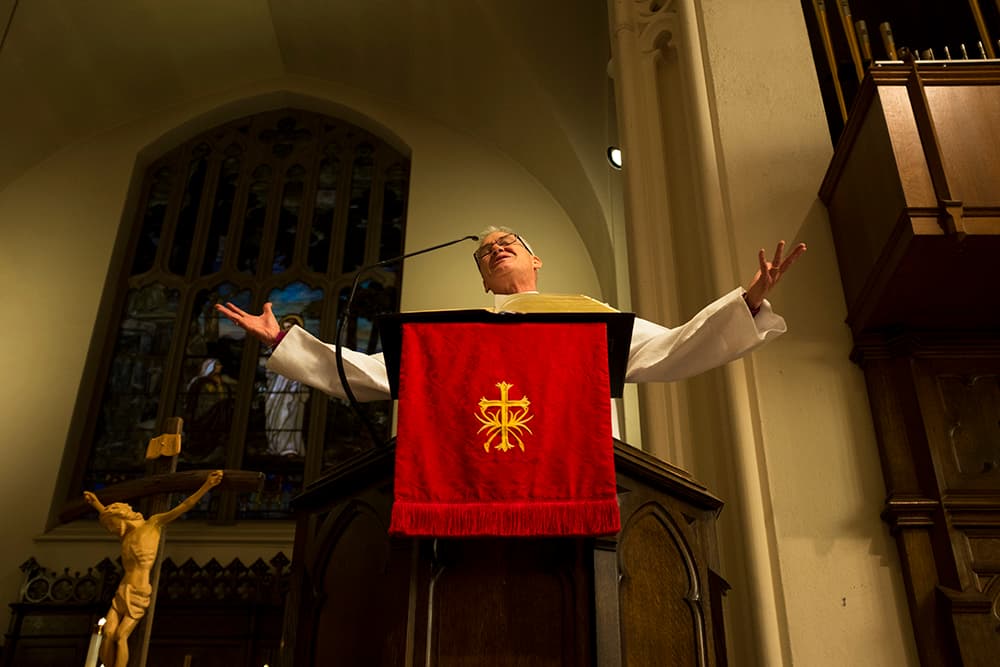
Gonia said it’s an exercise in humility that’s necessary to come together. People need to stop seeing differing ideas as right and wrong and appreciate what people have in common. It’s clearly a difficult task: It’s taken nearly 500 years for Catholics and Lutherans to take the first steps.
“I think we as the church can model respectful relationships with people who are different,” Sutton said. “That’s really important.”
Correcton: This article originally called the church “St. Paul Lutheran and Roman Catholic Community of Faith,” but it has been changed because the congregations have dropped the word “Roman” from their name.
